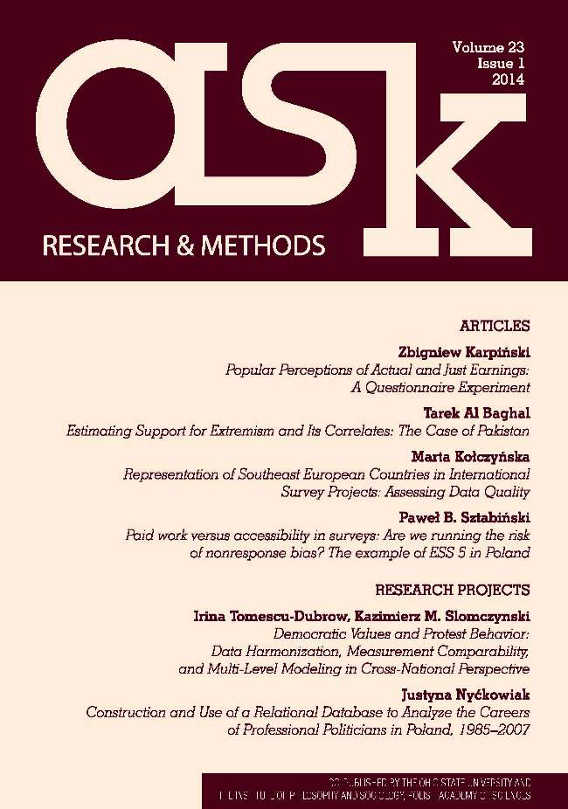Paid work versus accessibility in surveys: Are we running the risk of nonresponse bias? The example of ESS 5 in Poland
Paid work versus accessibility in surveys: Are we running the risk of nonresponse bias? The example of ESS 5 in Poland
Author(s): Paweł B. SztabińskiSubject(s): Social Sciences
Published by: Instytut Filozofii i Socjologii Polskiej Akademii Nauk
Keywords: accessibility in surveys; nonresponse bias; paid work as a variable in surveys; European Social Survey
Summary/Abstract: Research data shows that nonresponse in surveys is increasingly connected with respondents’ lack of time caused, among others, by respondents’ performance of paid work. Since paid work is one of the key sociological characteristics, the underrepresentation of working citizens creates a risk of nonresponse bias in surveys. This paper draws on data from the fifth round of the European Social Survey in Poland to demonstrate how realistic this risk is. Apart from paid work, the paper analyses three dimensions of workload: total work hours, regular/irregular nature of work and place of residence/place of work (the same or different location) and time spent commuting to/from work. The results of our analysis show that there is a risk of nonresponse bias associated with the performance of paid work and time spent commuting to/from work in another location. This risk may be reduced by increasing the number of contact attempts with hard-to-reach respondents.
Journal: ASK. Research & Methods
- Issue Year: 2014
- Issue No: 23
- Page Range: 79-101
- Page Count: 23
- Language: English

